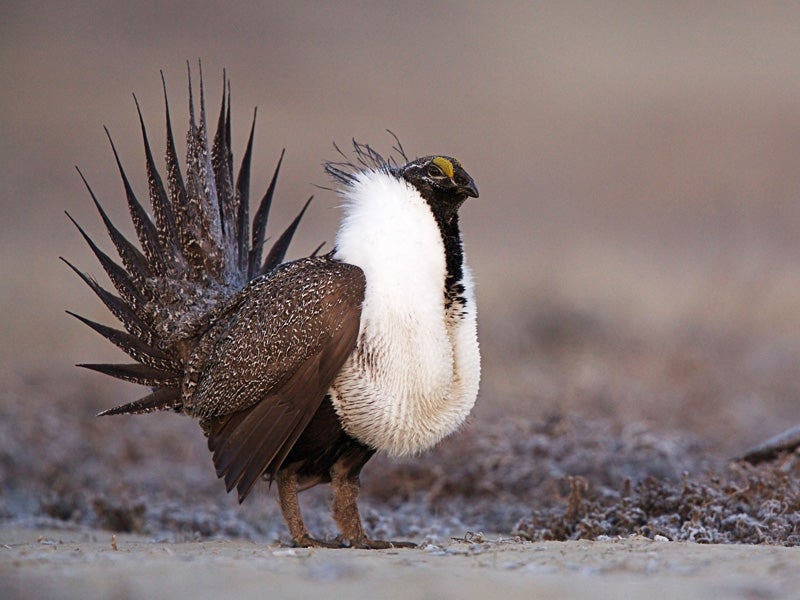America Says Yes, Congress Says No to Protecting Endangered Species
Despite nearly universal public support for the Endangered Species Act, members of Congress are using secretive tactics to try to gut its protections.

This page was published 8 years ago. Find the latest on Earthjustice’s work.
The Endangered Species Act (ESA) has overwhelming public support, despite being battered by repeated political attacks. According to a new national poll by Tulchin Research, 90 percent of American voters support the act—impressive results in an era of partisan strife when it’s hard to get Americans to agree on anything.
The poll also revealed that 68 percent of voters are more likely to vote for a member of Congress who supports environmental safeguards like the ESA, the Clean Air Act and the Clean Water Act. Plus, nearly three-fourths of voters believe decisions about which species should or should not be protected under the ESA should be made by U.S. Fish and Wildlife Service biologists, not by Congress.
Unfortunately, some members of Congress are acting out of step with the American public. Inside the walls of the Capitol, the ESA has come under attack via controversial “riders” attached to Interior Appropriations Bills in the House and Senate. Riders are added to bills despite having little connection to the bills’ subject matter, and are a tactic to pass controversial legislation that would not succeed as a standalone bill. In a Congress that’s having trouble squeezing out any sort of legislation, the Interior Appropriations Bill is a prime target.
Riders in the base text of the House bill attack federal protections for three imperiled species: the sage grouse, gray wolves in Wyoming and the Midwest and the northern long-eared bat. More riders were later added to undermine ESA protections for the Sonoran desert tortoise, the lesser prairie chicken, Preble’s meadow jumping mouse and six different types of mussels. Riders in the Senate bill target gray wolves in Wyoming and the Midwest, the lesser prairie chicken and the sage grouse. Supporters of these riders argue that the economic value of resource development like oil drilling is more important than the extinction of individual species.
Though the House appropriations bill was put on hold due to controversy over Confederate flag-related amendments, these riders threaten to reappear at the end of the federal government’s fiscal year on September 30, when pressure mounts to reach a deal on government spending before the clock runs out. They’re a concern for future negotiations, and even more troubling, a demonstration that Congress is out of step with the interests of the public.
“Congress passed the Endangered Species Act with an overwhelming bipartisan majority more than 40 years ago. And an overwhelming majority of Americans continue to support the goals of this law,” said Trip Van Noppen, president of Earthjustice. “This Congress is obviously listening to Big Oil and other special interests—not the American public—in its mad dash to deny protections for endangered species.”
Not all the latest news is bad, however. During House consideration of the Interior Appropriations Bill, Rep. Niki Tsongas (D-MA) led an amendment to remove the anti-ESA riders from the base text of the bill. Nine House Republicans voted in support of the Tsongas amendment, a heartening show of bipartisan cooperation and a strong signal of opposition to these anti-ESA riders, despite the fact that the amendment didn’t pass. And Sen. Tom Udall (D-NM) offered an amendment to the Senate Interior Appropriations Bill to remove all the anti-environmental riders from the bill, including the anti-ESA riders. Every single Democrat on the appropriations committee voted in support of that amendment, but unfortunately it was not enough to pass the amendment.
You can help remind your members of Congress of the overwhelming public support for the ESA—and the public’s opposition to weakening this law—by taking action today.
From 2015–2017, Caeleigh MacNeil was part of the Editorial team at Headquarters in San Francisco. She is a graduate of Duke University, where she studied English, journalism and environmental science.
Established in 1989, Earthjustice's Policy & Legislation team works with champions in Congress to craft legislation that supports and extends our legal gains.
